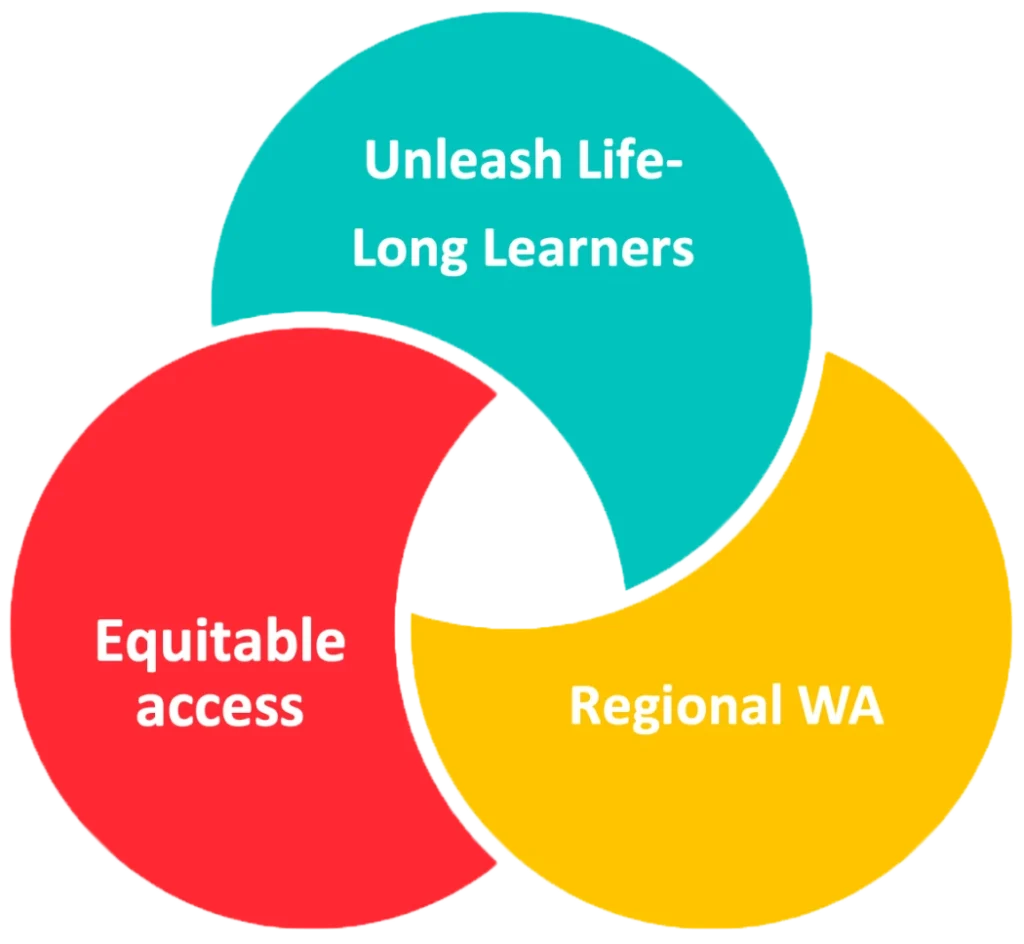Values, Mission, Vision
The REED Values were developed in an organisation-wide process of collaboration and consultation - our staff and Board live our values.
Partnering with regional families & communities
-
We communicate
openly and honestly. -
We find a shared
way forward. -
Our commitments are solid
(we do what we say).
Creating safe environments where everyone belongs
- We prioritise children and staff safety and wellbeing.
- We create inclusivity by respecting everyone’s journey and culture.
-
We actively listen
to our children.
Supporting each other to grow & evolve
-
We empower
each other. -
We embrace and
celebrate progress. -
We act collectively
to deliver locally.
Unlocking sustainability with curiosity & innovation
- We pursue new opportunities for excellence.
-
We ask the
hard questions. -
We think in solutions
not problems.
REED’s mission and purpose is to strengthen equitable access to unleash life-long learners in regional WA.


REED’s Strategic Plan on a Page 2025-2027 provides a detailed road-map for achieving our purpose.
REED was established in 2018 to meet community need for a provider recognised for its professionalism, sound governance and financial management, together with the quality of the services it provides for children, and underpinned by the following set of principles:
Regional Families
Regional families have a right to access quality Early Childhood Education and Care services that promote children’s development, enable parents to work, study or volunteer, and contribute to the social and economic wellbeing of communities and the region.
Not-For-Profit
The organisation should be not-for-profit and operate with the highest standards of governance and effective, skilled management.
Financially Viable Services
The organisation should deliver financially viable services which are sustainable into the future and are flexible, with the ability to adapt and manage change, including changing government policy and changing regional and local circumstances.
Community Engagement
The organisation must have an understanding of the local context and the importance of community engagement. There should be opportunity for parent participation through local level groups or committees which have an advisory but not a management or decision-making role.
Professional Development
The organisation should be recognised as a good employer that provides a supportive, stimulating environment for staff and opportunity for professional development.
Partnerships
The organisation should work in partnership with schools as colleagues in the provision of early childhood education and care as well as allied professionals as appropriate.
Community Contribution
The organisation should contribute to the community’s understanding of the importance of children’s early years and the importance and value of ECEC services to individual communities and the wider region.
Sign Up For Our Newsletter
